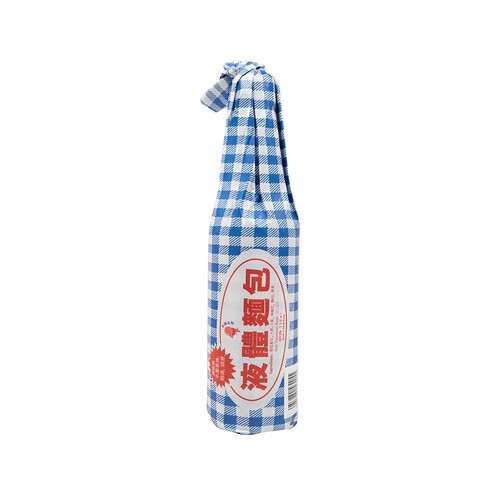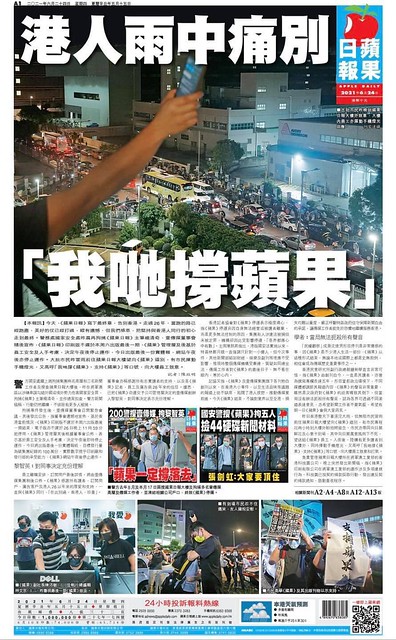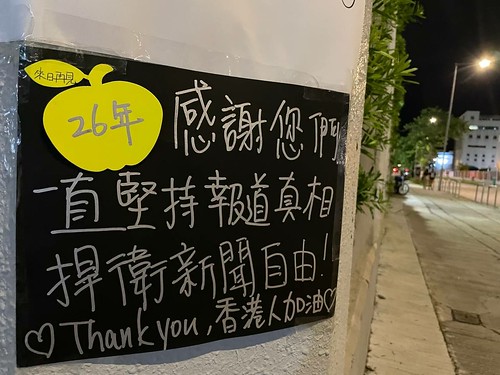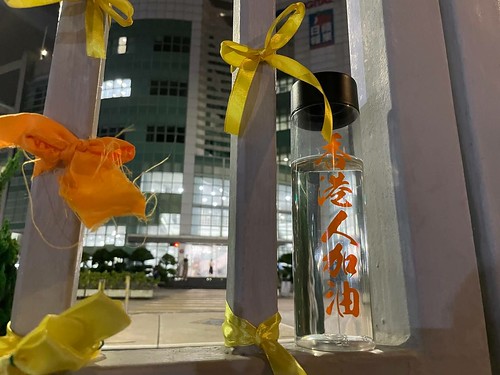Kris Wu
Canadian Chinese performer Kris Wu was in a Korean group before going out on a solo career in China as a rap artist. He has become a TV star as a judge on Rap of China – a TV talent show. Kris Wu has also appeared in some Chinese films, mostly wushu films that look and feel more like a computer game. The scandal that Kris Wu finds himself would be a career finisher in the west, but it will be interesting to see what happens in China.
Actor Kris Wu Accused of Predatory Behavior | HYPEBAE – Kris Wu has endorsement deals in place with Louis Vuitton, BVLGARI, Porsche, Lancôme, L’Oreal and Kans in China, along with other companies like Master Kong Ice Tea, Tuborg Brewery and more. Kans, a Shanghai-based beauty brand owned by C-beauty giant Chicmax, was the first to cut ties with Wu, announcing on July 18 that it has “terminated Wu’s endorsement contract. Meanwhile, Porsche, Master Kong Ice Tea, Vatti and King of Glory have deleted all their posts of Wu on Weibo. Louis Vuitton temporarily archived its Weibo posts of Wu but put them back on its feed not long after
Kris Wu: Brands Drop Pop Star Amid China Misconduct Allegations – Variety – the interesting thing is that Chinese brands dropped Kris Wu first, before western brands. This is despite western brands being exposed to the #metoo movement. Note: the Chinese police have since found Wu did avail of the casting couch and the accuser went public to gain fame – make of it what you will
China
The Lab-Leak Theory: Inside the Fight to Uncover COVID-19’s Origins | Vanity Fair – Wuhan is also home to China’s foremost coronavirus research laboratory, housing one of the world’s largest collections of bat samples and bat-virus strains. The Wuhan Institute of Virology’s lead coronavirus researcher, Shi Zhengli, was among the first to identify horseshoe bats as the natural reservoirs for SARS-CoV, the virus that sparked an outbreak in 2002, killing 774 people and sickening more than 8,000 globally. After SARS, bats became a major subject of study for virologists around the world, and Shi became known in China as “Bat Woman” for her fearless exploration of their caves to collect samples. More recently, Shi and her colleagues at the WIV have performed high-profile experiments that made pathogens more infectious. Such research, known as “gain-of-function,” has generated heated controversy among virologists. – this shows you how bolloxed China soft power is
What if America Delists Chinese Firms? by Shang-Jin Wei – Project Syndicate – Chinese firms’ most egregious accounting frauds tend to be discovered by professional short-sellers using techniques – such as undercover company visits – that auditing firms do not employ.
Consumer behaviour
The New-Style Family Values Underpinning the ‘China Dream’ – the emergence of a new kind of “familism” — an ideology in which family interests take precedence over individual ones. Yan, a professor of anthropology at the University of California, Los Angeles, sees this “neo-familism” as distinct from traditional Chinese familism, which revolved around ancestor worship and the perpetuation of one’s lineage. Success under neo-familism is defined in material terms such as wealth and consumption.
This year, Yan edited “Chinese Families Upside Down,” a collection of essays from academics that seeks to go beyond the conventional focus on filial piety to examine the new dynamics of intergenerational relations under neo-familism. Speaking with Sixth Tone over the phone, Yan talked about how and why family structures have received an unprecedented degree of high-level policy attention in recent years, the changes taking place in Chinese families, and the growing anxiety felt by parents and children in an increasingly risk-laden society
We’re All Teenage Girls Now | EE Times – During the early days of mobile telephony, I was living in Tokyo, where I observed schoolgirls glued to their clunky DoCoMos, learning the obligations and pitfalls of 24-hour texting, taking proto-selfies with their primitive photo apps and flocking — like moths to a streetlight — to Harajuku and Akihabara to blow their allowance on the latest advanced purveyor of girl gab.
Fast forward to this month, in Paris. I was on the suburban train from Charles de Gaulle Airport to the heart of the city. I looked up from the book I was reading…
…and I looked around. There were perhaps forty people in the car, including a busker rendering “Au Ciel de Paris” on a battered accordion. My trainmates represented all shapes, sizes and colors of adulthood between the ages of 25 and 70-plus. Of this random cadre, not including the accordionist, three-quarters were clutching slim rectangles of metal and glass, gazing raptly downward into a tiny screen at words, photos, videos, news, games, mail, etc. One woman in her thirties, impeccable in hair, clothing and makeup, never once — as I observed — raised her eyes from her phone through the entire 45-minute haul from airport to place St. Michel. Her thumbs, when she set them to messaging, were a blur
The first Olympic gold medal in skateboarding went to Japan — Quartz – big issue for skateboarding as a sport is how the Olympics might affect its culture and related categories. Despite its aspirations, the Olympics isn’t the X-Games.
Design
Humble Utility Poles Have a Long-Term Infrastructure Maintenance Plan | EE Times
After 3D printing now comes 4D printing | Smart2Zero
Economics
EDA, IC Manufacturing Gear Sales Hit Records | EE Times
Why Biden Seems Worse to China Than Trump – The New York Times
In defense of sanctions – by Kevin Carrico – NSL can’t cancel me
China is keeping its borders closed, and turning inward | The Economist
Will China Retaliate Against U.S. Chip Sanctions? – Lawfare
Hong Kong
Hong Kong leader Carrie Lam shrugs off scenes of residents leaving at airport, says city has ‘prosperous future’ ahead | South China Morning Post – Hong Kong leader Carrie Lam shrugs off scenes of residents leaving at airport, says city has best time and ‘prosperous future’ ahead. Hong Kong’s leader on Tuesday brushed off recent scenes at the airport suggesting an exodus of residents, adding that she would tell anyone considering leaving that the city would continue to prosper with Beijing’s support and the help of the national security law – this is quite shocking. I don’t think that I have seen a country allow a wilful brain drain in this way. Medical staff, teachers and the middle classes are the the people slipping away to supermarket jobs in the UK
Now News exec. resigns, cites ‘turbulent times’ for Hong Kong media – reports – Now News is a cable news channel
‘Hong Kong Tram Green’ now a recognised colour | Hong Kong Free Press HKFP – great to see the ‘dingding’ having its iconic nature be recognised
Over 90% of Hong Kong industrial estate tenants facing eviction oppose redevelopment plan | Hong Kong Free Press HKFP
Explainer: From ‘violent attack’ to ‘gang fight’ – How the official account of the Yuen Long mob attack changed | Hong Kong Free Press HKFP – to be fair other governments spin as well. But this shattered the illusion of Hong Kong being a place where rule of law happened and the Hong Kong Police were no longer ‘Asia’s finest’ but instead seen as Hong Kong’s biggest gang who were tight with the triads like the bad old days of the 1960s and early 1970s and then you have the wolves and sheep book prosecution National security law: Hong Kong police arrest 5 for allegedly conspiring to distribute seditious children’s books | South China Morning Post
Interview: London Mayor Sadiq Khan rolls out welcome mat for Hongkongers, HK$9.6m fund to help visa holders settle
Billionaires and a Hong Kong bank chief handed seats on powerful new election body | Hong Kong Free Press HKFP – the HSBC appointee is retiring from HSBC
Ideas
How cryptocurrency empowered the far-right – The Face
Outrage reaching boiling point as virus rages out of control – by Andrew MacGregor Marshall – Secret Siam – just wow, interesting article about COVID in Thailand. I imagine that this picture has played out to varying degrees around the world
The Year Modern Sport Watches Were Born | Gear Patrol – its interesting that all these iconic watch designs appeared in one year 1953. Every idea has its time that builds on previous innovations – an empirical proof of Kevin Kelly’s idea of the ‘technium’
The Work of Culture – Made in China Journal – the commercialisation and bureaucratisation of academia have led to a shift from ‘poetic technologies’ to ‘bureaucratic technologies’, which is one of the reasons why today we do not go around on those flying cars promised in the science fiction of the past century. As universities are bloated with ‘bullshit jobs’ and run by a managerial class that pits researchers against each other through countless rankings and evaluations, the very idea of academia as a place for pursuing groundbreaking ideas dies (Graeber 2015: 135; 2018). As conformity and predictability come to be extolled as cardinal virtues, the purpose of the university increasingly becomes simply to confirm the obvious, develop technologies and knowledge of immediate relevance for the market, and exact astronomically high fees from students under the pretence of providing them with vocational training
Luxury
Coach CEO talks China: From digital-first to staff as KOLs | Vogue Business – “About two years ago, even before the virus, we developed a very extensive programme to train each of our sales into KOLs so that we can leverage not only professional KOLs but also have hundreds of our own brand ambassadors,” explains Bozec.
Jackson Wang and Palm Angels’s Ragazzi on their new collab, making celebrity lines work | Vogue Business
Marketing
Subway Tuna Is 100% REAL Wild-Caught Tuna – Subway launches response site to debate on ‘is their tuna real tuna?’
Marketing imperatives for a cookieless world | WARC – Sophisticated marketers will attempt a shift to contextual and moment-based communication – a bit of time travel by brand custodians to the pre-internet era, where passion group targeting and focus on context might resurrect. There will likely be a pivot from the “bottom of the funnel” performance optimization to “top of the funnel” preference strategies. As the levers at the lower funnel weaken, it will become imperative to move the needle to build brand salience and affinity. Bringing the right audience to their owned website, capturing first-party data, building a strong CRM capability, and recalibrating emphasis on performance media to performance creative. The emergence of a third-party cookieless world presents an opportunity for brand marketers to truly own the consumer journey via meaningful and relevant communication strategies.
Long-Term Business Vitality Should Outweigh Short-Term Sales Gains – Nielsen – great essay and research on long termism versus short termism in marketing
Ehrenberg-Bass: 95% of B2B buyers are not in the market for your products
Male advertisers win sex discrimination case | Financial Times – unfortunate use of the world ‘obliterate’ in Jo Wallace’s presentation. WPP have got to hope to hell that Mark Read’s comments on older staff aren’t brought up
Media
Official Secrets Act reform could see journalists treated like spies | Press Gazette
Online
Why do people on Tinder list their Instagram? | British GQ – not terribly surprising when you think about the dynamics of Tinder. This has implications for Tinder’s business model of friends and dating based on buying premium services (visibility, bundles of super likes, ability to rewind and reexamine a profile)
How to be an Instagram influencer | British GQ | British GQ
How Neopets Paved the Road to the Metaverse – by Rex Woodbury – Digital Native
Security
US accuses China of masterminding cyber attacks worldwide | Financial Times
Who is Mr Gu? – Intrusion Truth – interesting investigation into Gu Jian a former PLA member who is an information security academic and associated with Hainan Xiandun which is one of a network of front companies for APT activity
Operation Fox Hunt: How China Exports Repression Using a Network of Spies Hidden in Plain Sight — ProPublica
The Huawei Moment – Center for Security and Emerging Technology
Technology
AI tool cuts 3nm chip design times
ABB to buy Spanish autonomous robotics group | EENews Europe – I wouldn’t have set up the factory in China
ARM shows first plastic M0+ microcontroller
Web of no web
Robotaxis: have Google and Amazon backed the wrong technology? | Financial Times
Wireless
What the Orange Dot on Your iPhone Means | Gear Patrol





